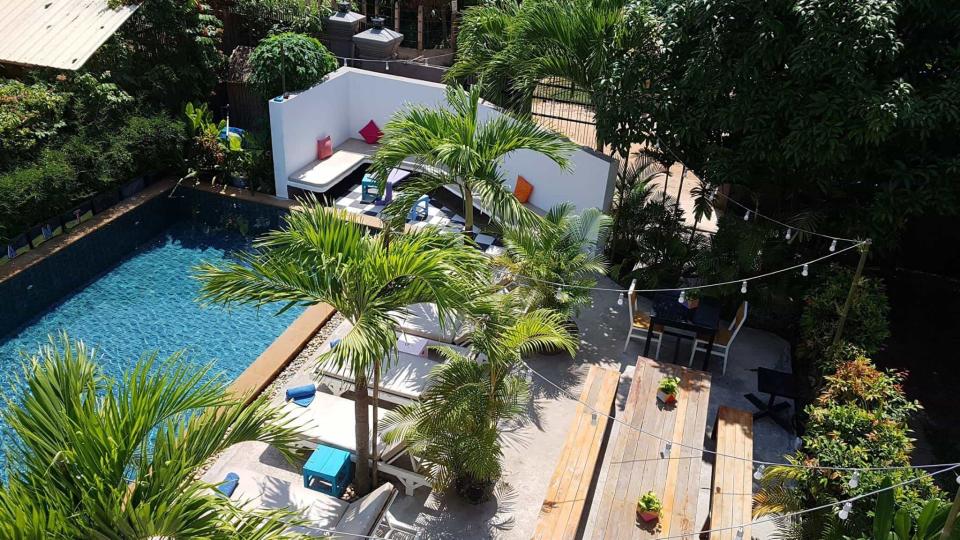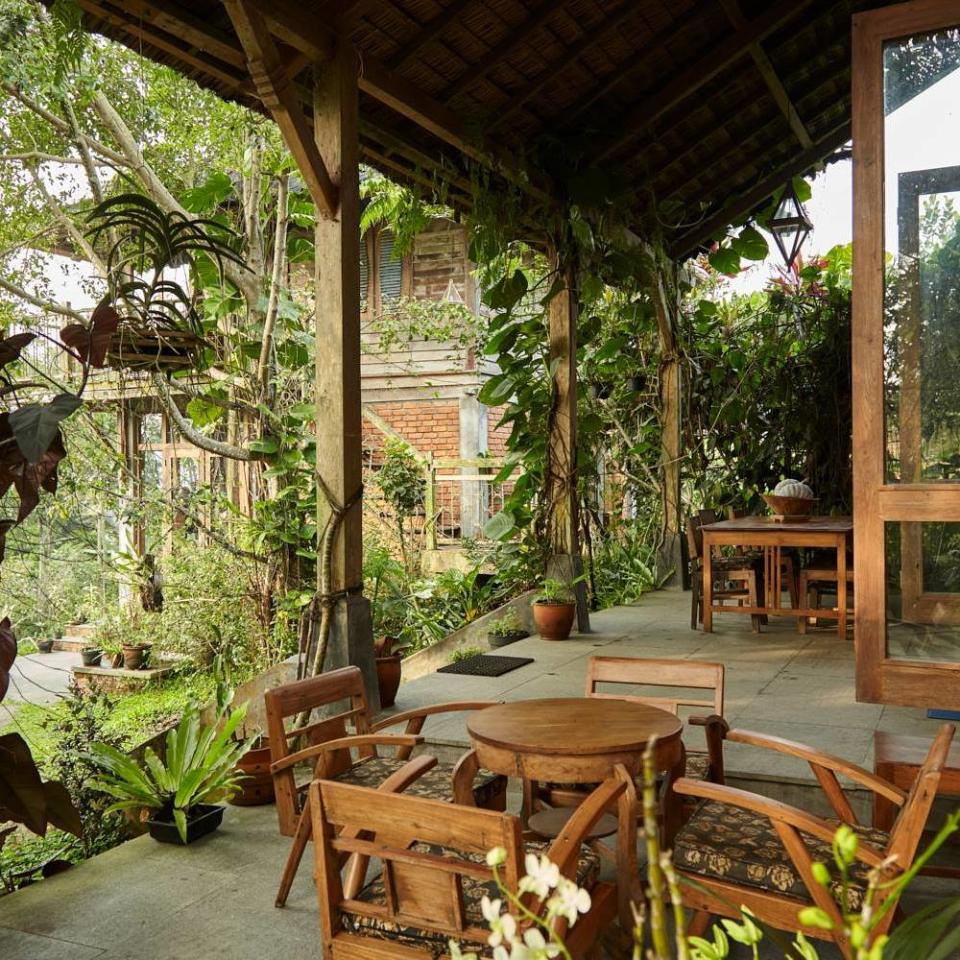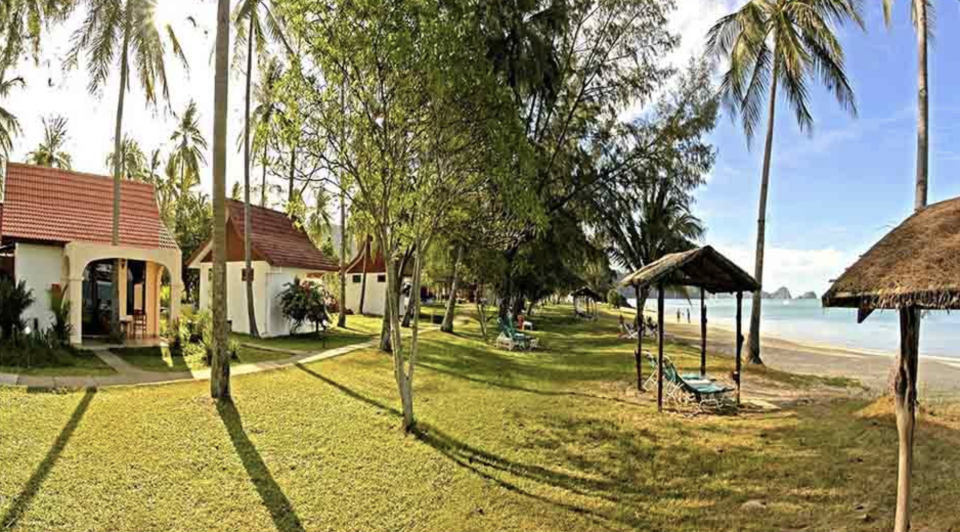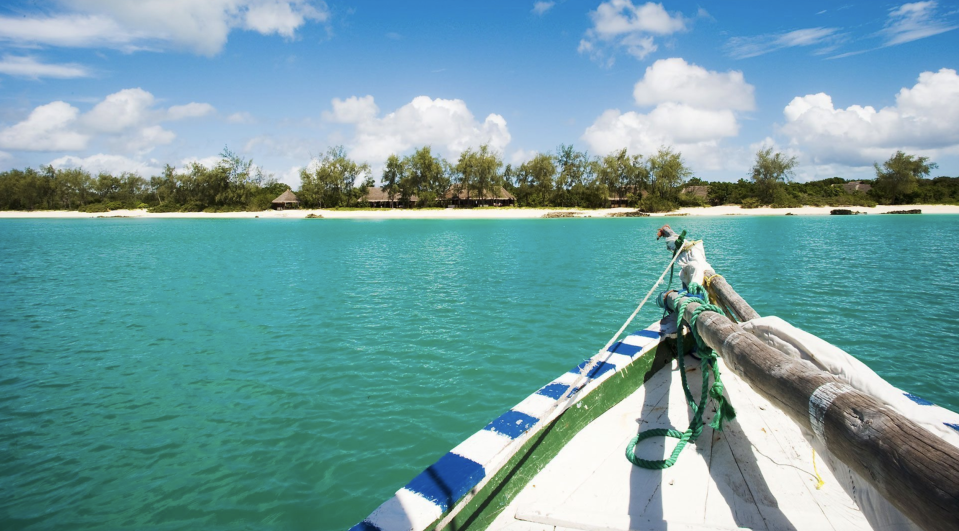Tips for sustainable travel and the best eco-friendly hotels to stay at

Yahoo Lifestyle Singapore marks Earth Week from 16-22 April with a series of articles about sustainability and environmental protection.
The latest buzzword for everything from food and clothes to interior design is ‘sustainability’ but it’s more than just the things we buy, it’s also about the things we do.
So when it comes to planning your next holiday, you probably should think about whether or not it will cause additional damage to the environment. After all, there’s no point in doing without plastic bags, if you are just going to poison the sea with sunscreen or pour carbon into the atmosphere on your plane ride, right?
Obviously with all this attention to being more sustainable, and finally worrying about the state of our environment, lots of brands and organisations are also jumping on the bandwagon and trying to come up with ways to create sustainable or eco-friendly travel. We all love to travel, and it’s not very likely that we will be stopping any time soon.
READ MORE:
5 easy ways to be a more ethical consumer
Keep calm and carry on crafting: Meet Singapore’s latest crafters
Fashion students turn recycled plastic into clothes for modest wear competition

How to travel in a more eco-friendly and sustainable way
Stay home
Well, we could all just stay home. Actually, that’s the best way to be sure that your carbon footprint is under control. This is also why the phenomenon of staycations can be seen as a type of eco-travel. You don’t fly anywhere; you can use public transport to get there; and you can choose an eco-friendly hotel to stay in.
If you’re in Singapore try the Oasia Downtown hotel. You might be surprised to discover that the Oasia Downtown is actually quite eco-friendly; its lovely gardens and greenery are not just for good looks, but are actually part of the hotel’s design. The plants help to absorb heat – by up to 25C – reducing the use of electricity to cool the building. The design also uses cross-ventilation for more passive cooling, and all the watering and air-cooling units use NEWater. Not bad.
Getting there: Trains and buses
From Singapore you can get to other countries relatively easily – particularly those in Southeast Asia. Plan trips to nearby countries like Malaysia and Thailand, and take a train or bus rather than fly. If you’re heading to Indonesia, take a boat.
You could even jump on your bike and travel around the region on pedal power.

Getting there: Planes
The really large elephant in the room when it comes to travelling sustainably is flying. Can taking a plane journey be at all sustainable?
The obvious thing about flying is the size of your carbon footprint thanks to the use of oil, plastic and other manufactured materials in just the planes themselves, let alone all the rest at airports. According to the International Air Transport Association (IATA), over 10 million tonnes of plastic waste is produced by the aviation industry – most of this is from airline food. So, take your own food in reusable containers to help reduce this waste.
To help ‘offset’ this footprint, you can fly with airlines that offer choices like some sort of CO2 emission reduction project, or look for a flight that uses biofuel. Finnair is one international airline that offers these sorts of offset packages. They have also reduced excess plastic from their Business Class amenity kits. Done in collaboration with Marimekko, the new kits will help cut almost 4,500 kg of plastic waste per year. The kits are super cute too.

Another thing you can do when it comes to flights, is to pack light and fly the shortest route to where you are going; this will save on fuel costs.
“If every Finnair passenger would [remove] 1kg from their luggage per flight per year, it would save approximately 20 Tokyo-Helsinki flights – that’s 1.2 mil kg of fuel!” explains Sebastian Grossmann, Regional Manager for Singapore, Malaysia and Indonesia at Finnair.
“If each passenger reduced the amount of their luggage by 5kg, we could fly over 400 round-trip flights (and over 80,000 passengers) with saved fuel from Helsinki to Paris.
With our current traffic volumes and a 5kg reduction of luggage, the CO2 emissions per passenger would be reduced by almost 17,000 tonnes per year.
“By making the right choices, passengers can cut emissions by up to 30%,” says Mr Grossmann.

Hotels to stay at that are eco-friendly and sustainable
Once you get to where you are going, think about what type of hotel you choose to stay in. There are a number of hotels in Asia and around the world that offer eco-friendly and sustainable holiday options from 5 star luxury resorts, to cheap and cheerful hostels.
Park Hyatt Hadahaa, Maldives
You get all the luxury you expect at a 5 star resort, but your conscious can be clear about how it is being produced. This hotel was designed to have a light footprint on the coral atoll, and the management collects plastics from the surrounding islands as well as the reduced amount at its own island every week. Your food and drinks come from sustainable suppliers and an in-house team looks out for the natural environment.

Borgo Pignano, Tuscany, Italy
This elegant restored 18th century villa, now hotel, in Tuscany was saved with locally sourced and reclaimed materials, and uses eco-friendly products for decor, cleaning and packaging. On top of that, the hotel also gets its energy from solar panels, wood-chip boilers using timber from the estate and implemented water-conserving techniques for its farming – the source of the hotel’s food.

Song Saa Private Island, Cambodia
Set on a private island, this resort is both an eco-friendly, and an ethical organisation. Every day the staff – and guests if they want to – undertake beach cleaning and work on other conservation programmes like community fisheries, a coral nursery and a marine protection project. Education is also a major part of what they do, taking guests and locals on environmental excursions. The resort itself was built with local and reclaimed materials and by local craftsmen; food is seasonal and local produce – mostly vegetarian and vegan friendly. The hotel also supports a foundation for a local school. Eco and ethical.

The Yard Hostel, Bangkok, Thailand
This fun casual hostel has been built from recycled shipping containers, uses recycled paper for insulation, inverter air conditioners and LED lighting, offers refillable glass water bottles and composts its food waste for the hostel’s garden. All of these eco-friendly and sustainable practices are located right in the middle of the funky Ari district in Bangkok. It’s also very Instagramable.

Golden Buddha Beach Resort, Koh Phra Thong, Thailand
If you are looking to escape the bustle of a city, the Golden Buddha Beach Resort offers a relaxing environment of bungalows and treehouses without air conditioning but cooled by solar panel run fans and sea breezes. All the waste is shipped to the mainland for recycling, and the money made goes to the staff. The hotel has also banned plastic bags and the staff use bamboo instead, alongside homemade sustainable washing liquid made from orange peel. Even the items in the gift shop are sustainable.

Baby Elephant Boutique Hotel, Siem Reap, Cambodia
Aside from its very cute name, this hotel is focused on protecting the elephant’s environment and the culturally important Angkor Wat in the heart of Siem Reap. Waste material is used for compost or food for farm animals, glass is recycled in-house or passed to small businesses who rely on the items, cooking oil is converted into biodiesel and the organic garden produces ingredients for the hotel, as well as for staff meals. The staff are trained to understand the various eco-friendly activities and even the mozzies are controlled with non toxic repellants.

Lodges Ekologika, Pesawahan, Cicurug, Indonesia
You might be surprised to discover an eco-friendly respite just two hours away from Jakarta, but the recycled teak bungalows of Lodges Ekologika are just the thing as a respite from the busy capital city. Alongside the use of recycled materials, the lodge also offers solar power, collected rainwater, reused greywater and staff that need only walk to work, and the property has its own organic farm producing all the food needed. Lodges Ekologika actually started out as a reforestation programme, which is still going, with more than 1,500 new trees and counting.

The Frangipani Langkawi Resort and Spa, Langkawi, Malaysia
At first sight this resort seems to be a normal luxury spot, but in fact, for 10 years The Frangipani has been eco-friendly, with everything from homegrown fish and chickens, to upcycled and recycled materials, plus a dedicated series of sustainable conferences and forums. You can learn everything you need to know about running an eco-friendly, ethical and sustainable operation on the resort’s Eco-Walk tours too.

Oceans Without Borders Programme
If you are keen to help ocean preservation, you can take specialised tours like the Oceans Without Borders programme by andBeyond, an experiential travel company.
; it is a 6 day tour and supports marine conservation in partnership with the Africa Foundation. Focused on passing on knowledge about ocean environmental issues, you will visit a protected grey reef shark breeding site with a local marine biologist.
Want to learn more about living a more sustainable life? Read our stories about how to be an ethical consumer; how to help save our oceans; and discover how your clothes can be made from recycled plastic bottles.


